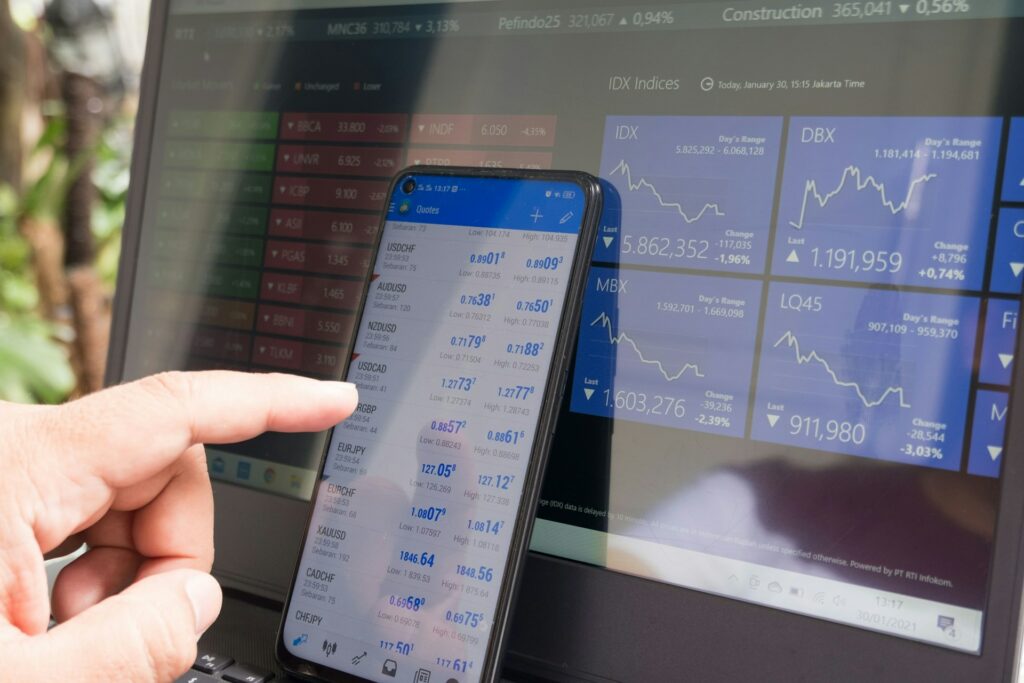All About Forex Trading

All About Forex Trading
Forex trading requires what amount of money?
Forex trading doesn’t need a wealth, which is excellent news for ambitious traders. Brokers often accept $1 deposits. Start with $10 in a cent account for high leverage.
Forex trading requires what amount of money?
Forex trading doesn’t need a wealth, which is excellent news for ambitious traders. Brokers often accept $1 deposits. Start with $10 in a cent account for high leverage.
But how much to invest?
Watch for low entrance barriers. Trading requires risk management for long-term profitability. Typically, trades should not exceed 1-2% of your account worth. If your account balance is $100, limit trading risk to $1-2.
Day traders should start with several hundred dollars to account for volatility. Swing traders, who hold positions for days or weeks, may require thousands to start.
Buy-and-hold investors should change their beginning amount dependent on their equities or ETFs.
Invest just what you can afford to lose in any trading method. Beginners should start modest, acquire good trading strategies, and progressively grow their account size as they develop confidence. High leverage magnifies earnings but also magnifies losses, therefore it should be utilized cautiously.
Which Forex broker suits me?
For novices
Demo accounts let you practice and test your Forex trading methods before investing real money. To reduce learning losses, consider cent accounts with small trading quantities. Copy trading, following experienced traders’ actions, is a good introduction, but it’s not assured success.
For scalpers and day traders
Day traders and scalpers might use ECN/Raw spread accounts for narrow spreads and direct market access, which speeds execution and reduces slippage. costs and spreads below one pip for key currency pairings like EUR/USD and commission costs from $2 to $5 per ordinary lot traded make high-frequency trading cost-effective.
For algorithmic traders
Algorithmic traders require API-integrated MT4/MT5 brokers with Expert Advisors. Choose brokers with algo trading training materials, devoted customer support, and backtesting tools. Prioritize regulation, security, and fast customer service with brokers with competitive commissions and narrow spreads.
Advanced investors
Advanced Forex traders should choose brokers with ECN/STP execution, direct market access, cheaper commissions, and attractive margin rates for automated trading techniques, complicated order types, and advanced charting tools. Brokers should also provide market analytical tools, instructional materials, and advanced trader assistance.
What are normal Forex trading costs?
Forex traders must consider expenditures that affect their profits. The average prices are shown below:
Spreads: The difference between currency pair purchase (bid) and sale (ask) prices. Tighter spreads reduce expenses. Forex ECN spreads are typically 0.1 to 0.5 pips, whereas conventional spreads are 0.5 to 2 pips.
Commissions: Some brokers add fixed or variable trading fees to the spread.
Per-lot costs: ECN and STP accounts frequently charge per-lot fees instead of spreads. Although smaller than spreads, these fees might build up with bigger trades. Per regular Forex lot, ECN fees are $2–5.
Non-trading fees: These may encompass conversion fees to cover the expenses associated with depositing or withdrawing funds in a currency that is distinct from the base currency of your account, rollover fees or interest levied for holding leveraged positions overnight, and inactivity fees for accounts with low trading activity to encourage participation.
You must compare broker prices to identify the best cost-effective solution for the way you trade and volume. While picking a broker with low fees might enhance earnings, you still risk losing your funds.
Which Forex trading platforms are best?
Due to their user-friendly interfaces, demo accounts, instructional materials, and plentiful technical indicators and tools, MT4 and MT5 (MetaTrader) are perfect for novices. Forex trading principles are easy to learn with them.
C# programming support permits advanced algorithm and trading bot creation, making CTrader a popular alternative for automated traders. It simplifies strategy design and backtesting and integrates with various applications and data sources. Programming-experienced algorithmic traders like its versatility.
Interactive Brokers and Charles Schwab Forex provide top-tier charting and investing tools for seasoned traders and investors. They provide advanced charting, technical indicators, research tools, drawing choices for market analysis, and more asset classes. Active traders with high volume give narrower spreads and better execution.
Is trading currencies risky?
Risks of forex trading include:
Market Volatility: Economic news, political developments, and market emotion may swiftly change currency values, causing unanticipated losses.
Leverage: Leverage increases profits and losses. A little market move against you may wipe all your money.
Liquidity Risk: Less-traded currency pairings might be hard to purchase or sell, resulting in slippage.
Counterparty Risk: Your broker or bank may default.
Geopolitical Events: Global unrest may destabilize currency markets.
Before trading Forex, you must understand these dangers and handle them.
Legal Forex trading?
Forex trading is permitted in most nations. Trading currencies without a central exchange makes Forex a decentralized worldwide market, therefore restrictions differ by state. Most governments regulate Forex brokers to safeguard traders and guarantee fair conduct.
You must research your country’s Forex regulatory system and choose a well-regulated broker to trade safely and legally. TU helps traders choose a broker by considering legal issues of broker supervision in its brokerage rankings, showcasing only regional brokers who operate legally and accept customers from your country.
Watch for low entrance barriers. Trading requires risk management for long-term profitability. Typically, trades should not exceed 1-2% of your account worth. If your account value is $100, limit trading risk to $1-2.
Day traders should start with several hundred dollars to account for volatility. Swing traders, who hold positions for days or weeks, may require thousands to start.




